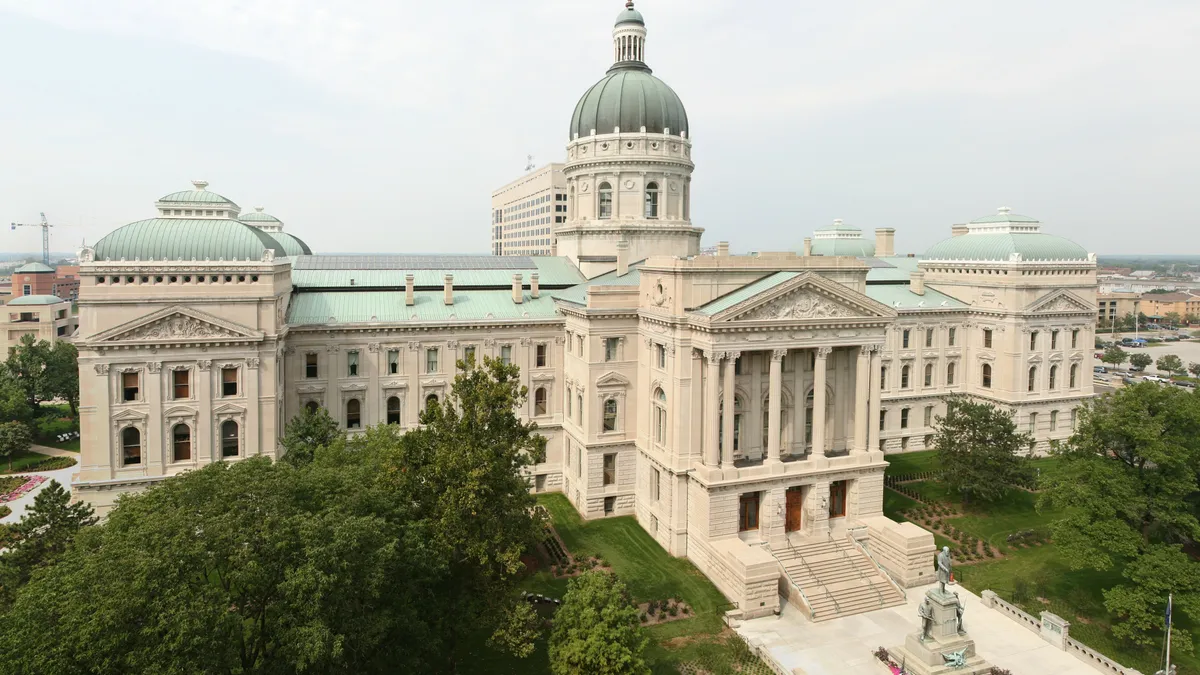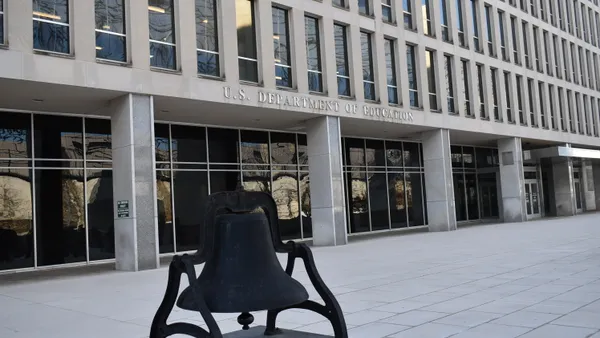Dive Brief:
- Two Purdue University Fort Wayne professors filed a lawsuit this week seeking to block a new state law that ties tenure at Indiana’s public universities to whether instructors encourage intellectual diversity.
- Under the statute, university boards can deny faculty members tenure if they don’t “foster a culture of free inquiry, free expression, and intellectual diversity.” If tenured faculty members fail to meet these requirements, they can face discipline, including salary reductions, demotions and termination.
- The measure is set to take effect July 1. The American Civil Liberties Union of Indiana filed the lawsuit on behalf of the two tenured professors, arguing that the statute is unconstitutional because it violates their First Amendment rights.
Dive Insight:
Local faculty groups panned the tenure law even before it passed the Indiana Legislature in late February.
In addition to the new tenure requirements, the law also allows students and employees to file complaints against professors they say are not promoting a culture of free inquiry. And it requires that tenured professors be reevaluated under these standards every five years.
Two chapters of the American Association of University Professors — one at Indiana University Bloomington and the other at Purdue University West Lafayette — published a joint statement in February arguing that the statute would undermine academic freedom and impede the two universities from recruiting and retaining talented faculty members.
Shortly thereafter, lawmakers passed the bill, and Gov. Eric Holcomb signed it into law.
This week's lawsuit, which was filed in federal district court against Purdue’s trustees, echoes previous criticisms levied against the statute.
The statute “puts Indiana’s professors in an untenable position,” Stevie Pactor, staff attorney at ACLU of Indiana, said in a statement. “Through vague language and the threat of harsh sanctions, including termination, the law strips professors of the academic freedom that the Supreme Court has long recognized they have the right to exercise.”
Although the law defines intellectual diversity as “multiple, divergent, and varied scholarly perspectives,” it doesn’t spell out the meaning of “free expression” or “free inquiry.” Neither of the plaintiffs understand their responsibilities or the actions they must avoid under the statute, according to the complaint.
Thus, the lawsuit argues, the two professors “believe they could be compelled to speak or prohibited from speaking” in violation of their free speech rights.
One of the plaintiffs is history professor David Schuster, who is working to be promoted to full professor, according to the complaint. The lawsuit says that Schuster doesn’t believe he should be forced to teach “divergent” views about slavery, such as the perspective “that slavery ultimately benefitted African-American people.”
Communications professor Steven Carr, the other plaintiff, has similar concerns, the complaint says. Carr is the director of the Institute for Holocaust and Genocide Studies and is scheduled to teach four classes in the upcoming academic year.
“‘Divergent’ perspectives regarding the existence and scope of the Holocaust exist, ranging from denial that the Holocaust occurred to ‘revisionist’ accounts challenging the scope and causes of that genocide,” the lawsuit argues. “Professor Carr would not teach those ‘perspectives,’ but the language of the statute would appear to require him to do so.”
Carr shared concerns with reporters Tuesday that the statute would give debunked theories new life.
“That’s simply unacceptable,” Carr said.
The two professors are asking the judge to declare the statute unconstitutional, block it from taking effect in July, and award them legal fees and other relief.
Tim Doty, a Purdue spokesperson, said the institution has not yet been served with the lawsuit. However, Doty pointed to a February statement from top university officials saying Purdue would remain committed to academic freedom.
“Unlike many other institutions that headed down convenient yet slippery slopes in recent years and months, this university has not been in, and will not get into, the business of censoring controversial speech, chilling unfashionable viewpoints, canceling campus events, suspending faculty or fellows, or issuing endless institutional public statements on social-political issues,” the statement said.














